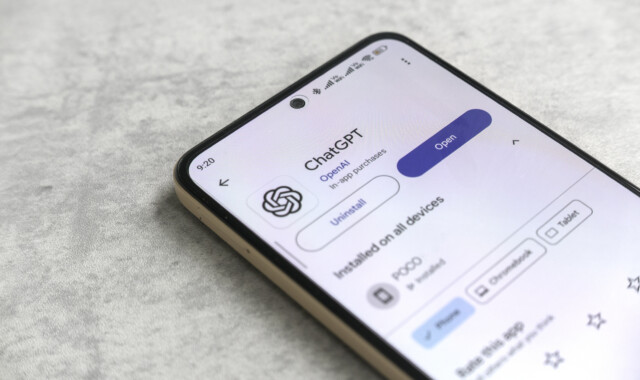Contents:
The festive season is here, bringing with it a whirlwind of joy, family gatherings, and the unmistakable scent of gingerbread cookies! As a parent, it’s natural to want the best for your child, including their academic success. However, finding the right balance between holiday merriment and keeping up with schoolwork or revision can be challenging.
In this article, we’ll explore various strategies that can help you and your child make the most out of the festive period without compromising academic progress.
The importance of a break
During the Christmas break, it’s crucial that your child takes some well-deserved downtime. Periods of rest and relaxation help children and teenagers regulate their emotions, lower their stress levels, and enhance their memory and cognitive abilities. Encouraging your child to step back from their studies will help them return to school in the new year with renewed energy and enthusiasm.
The holiday break is also a great opportunity for your child to catch up on sleep and establish healthier habits – between school, extracurricular activities, and homework, sleep often takes a backseat during term time!
Should your child take a complete break from revision during the holidays?
If your child doesn’t have any major exams or assessments coming up and they aren’t in a critical exam year, consider letting them take a complete break from revision and schoolwork once they have completed all their homework. This break will be a much-needed opportunity for your child to relax, recharge their batteries, and refocus. They can spend the rest of the holidays socialising with family and friends and gorging on chocolate! It may also be a chance for them to pursue other hobbies or interests that they may not have had time for while juggling their studies.

If your child isn’t as lucky and has mock exams after the Christmas holidays or are in an exam year, it’s vital to ensure they still get the rest they need. Consider setting aside specific days throughout the Christmas break when they’re not allowed to do any schoolwork. If your child has a revision timetable, make sure they block out these rest days so they can plan their study sessions accordingly. Having these designated days off will allow your child to fully unwind and engage in festive activities without feeling guilty or overwhelmed by academic pressures. This will also help them return to their revision with renewed energy and (hopefully) motivation!
Create a realistic Christmas study schedule
Sit down with your child and make a list of their holiday homework, assignments, and revision. Break down large tasks, such as ‘Biology revision’ into smaller, more manageable chunks like ‘make flashcards for Biology Topic 1.1 Cell Structure’. It’s helpful to estimate the time required for each task to avoid cramming a big project into a short period of time.
After scheduling specific days off, come up with a realistic schedule that accommodates your child’s academic responsibilities, as well as festive activities. Remember to schedule in short breaks during ‘study time’ to allow your child to take some time away from their desk. If their timetable is realistic, you’re less likely to have disagreements when it comes to making them stick to it.
For more detailed guidance on creating the perfect revision timetable, check out our article: How to make a revision timetable you’ll actually use!

Quality over quantity
When it comes to revision during the holidays, prioritise quality over quantity. Focused, effective study sessions are more beneficial than marathon cramming sessions. Encourage your child to try out the Pomodoro technique – they can spend 25 minutes working on a focused task and then take a five minute break to get away from their screen, grab a snack, and stretch their legs. Several websites and revision apps, such as Forest, provide an automated Pomodoro timer for students to use.
Help your child identify effective revision methods that suit their learning style – whether it’s taking notes, creating flashcards, visualising concepts through mind maps, or practising past papers. Understanding what works best for them will save time and boost their productivity. Not sure what resources are available? Check out our parents’ guide to revision resources for expert tips and practical tools to support their learning.
Additionally, encourage your child to set clear and achievable goals for each study session. Specific objectives, such as completing a section of a textbook or mastering a set of equations, provide direction and purpose to their study time.
Provide reassurance
It’s important to reassure your child if they feel they aren’t managing to get as much work done as they’d like. Independent study is a challenging skill to develop, and it’s natural for them to encounter difficulties. Reassure them that every bit of effort makes a difference – doing just one or two focused hours of revision a day is far better than none. Celebrate their achievements, no matter how minor they may seem, and remind them that taking breaks and maintaining a healthy balance is just as important as the revision itself.
Finding the right balance between revision and holiday festivities can be challenging. Work with your child to create a realistic study schedule that accommodates both academic tasks and festive activities. By setting achievable goals, promoting focused bursts of study, and allowing ample time for rest and relaxation, you can ensure your child enjoys a well-rounded and fulfilling Christmas break that prepares them for a successful return to school in the new year.
FAQs
How much revision is enough over the Christmas holidays?
The amount of revision your child needs to do over the holidays depends on several factors, including their year group, whether they have mock exams or major assessments after the holidays, the volume of content they need to review, and whether they have special educational needs and disabilities (SEND).
For students without imminent exams, completing homework and enjoying a well-deserved break should suffice. For those preparing for mocks, the time required will vary – some may benefit from two to three hours of focused revision per day, while others might require longer study days to cover everything thoroughly. The key is to tailor the approach to your child’s needs, balancing productive revision with ample breaks and downtime to keep them motivated and prevent burnout.
How can I motivate my child to revise during the holidays?
Motivating your child to revise during the holidays starts with balance. Work together to create a realistic study plan that fits around festive activities, and break tasks into smaller, achievable goals. Using engaging revision tools like apps or flashcards can make revision feel less like a chore. Positive reinforcement, small rewards, and celebrating their progress will help them stay motivated without feeling overwhelmed.
What if my child is struggling to stick to their revision plan?
Reassure your child that this is normal and encourage flexibility. Adjust the schedule to make it more manageable, and remind them that any revision is better than none.
Are there tools or resources that can help my child revise more effectively?
There are plenty of tools and resources to support effective revision. Educational apps like Forest or Quizlet can help your child stay focused and organise their revision materials. Flashcards and mind maps are excellent for condensing information and retrieval practice. Past papers are invaluable for reinforcing understanding, highlighting knowledge gaps, and refining exam technique. For more suggestions, explore our parents’ guide to revision resources.
How can I help my child with revision if I’m not familiar with the subject?
Even if you’re not familiar with the content, you can support your child by helping them create a study plan, providing a quiet space to work, and sourcing useful resources like past papers or revision notes. Encouraging them and showing interest in their progress can also make a big difference.








Comments